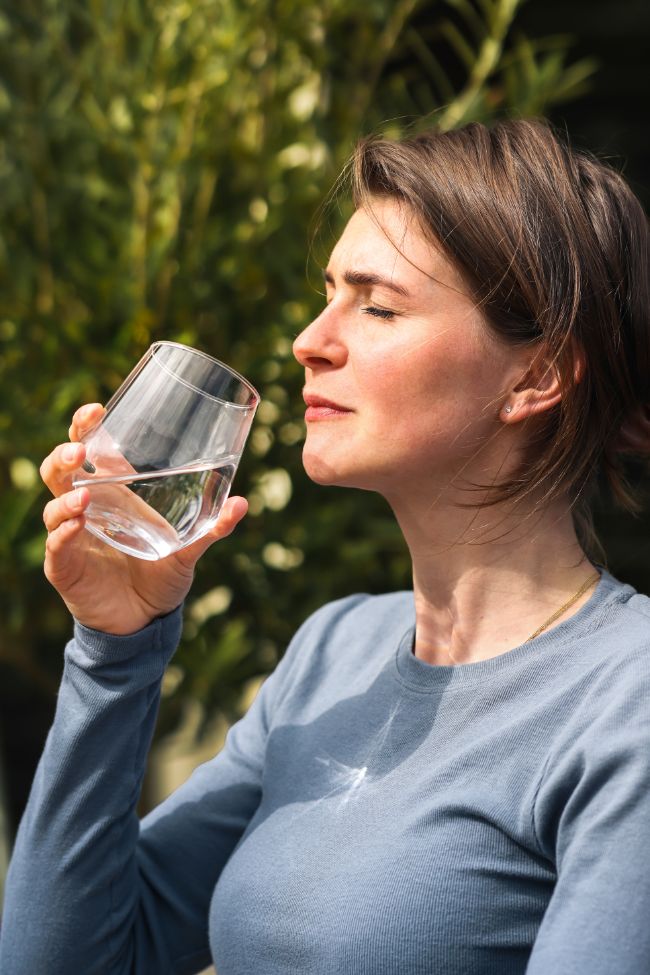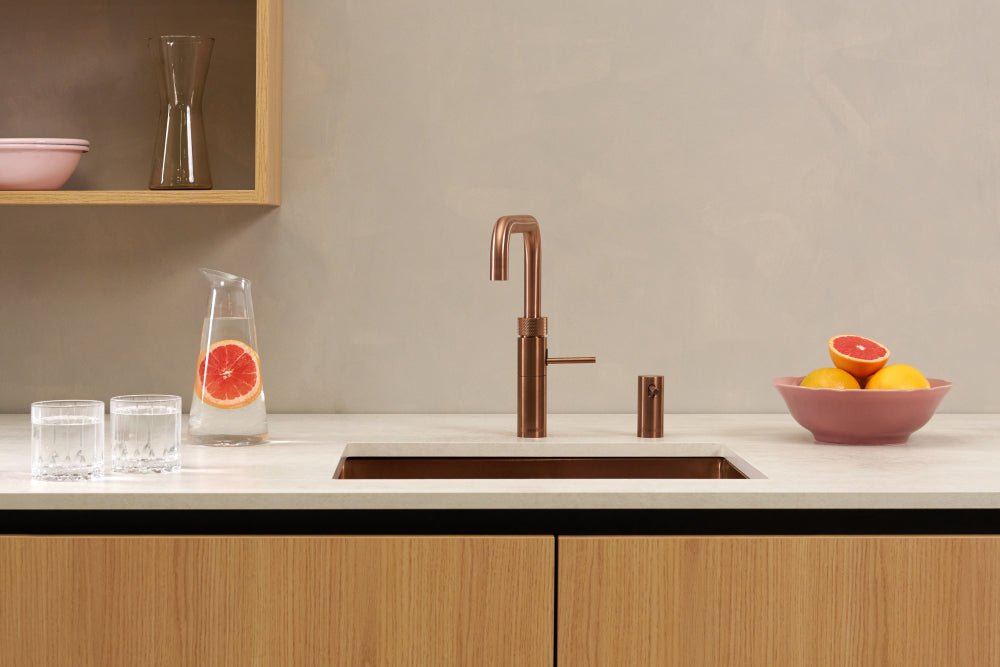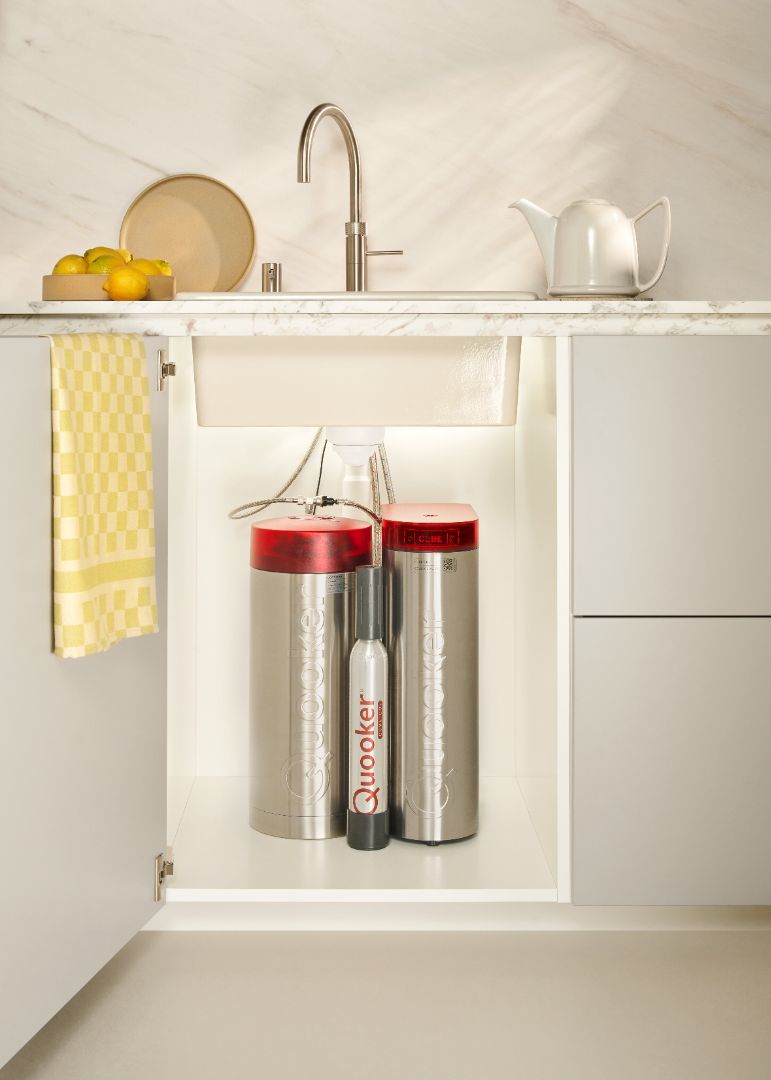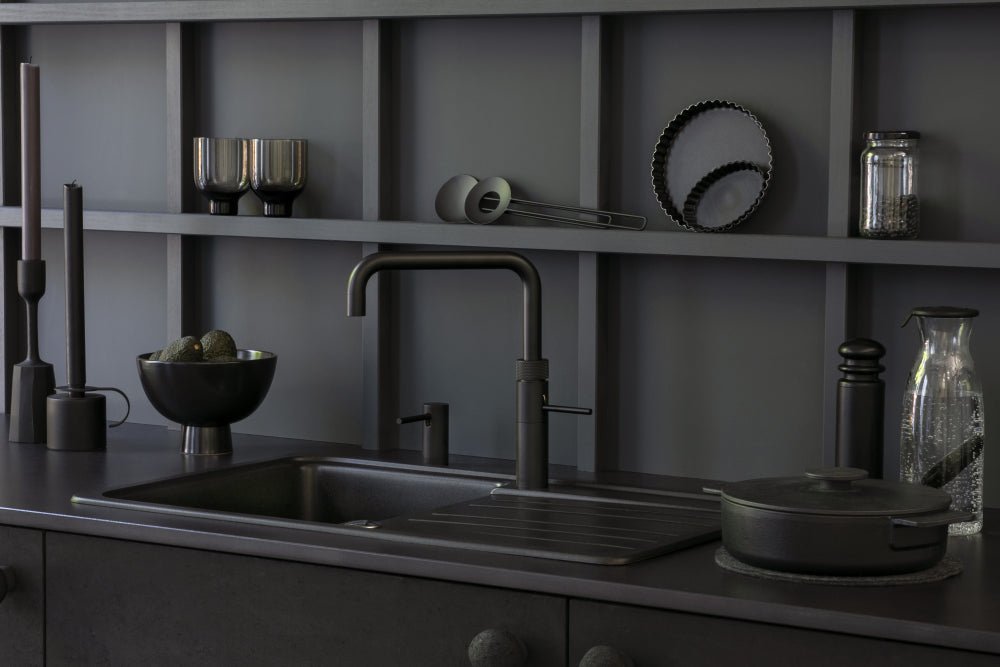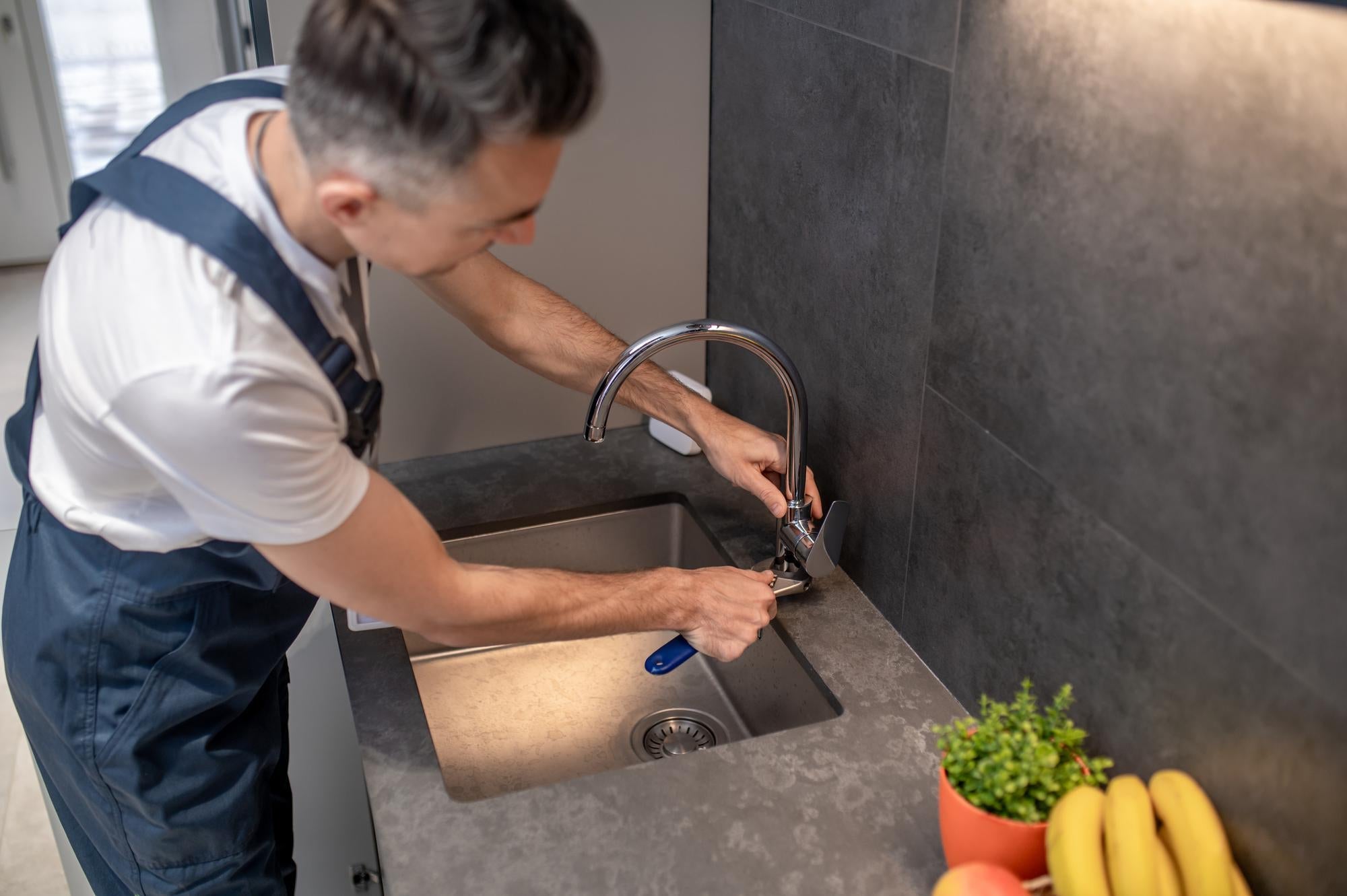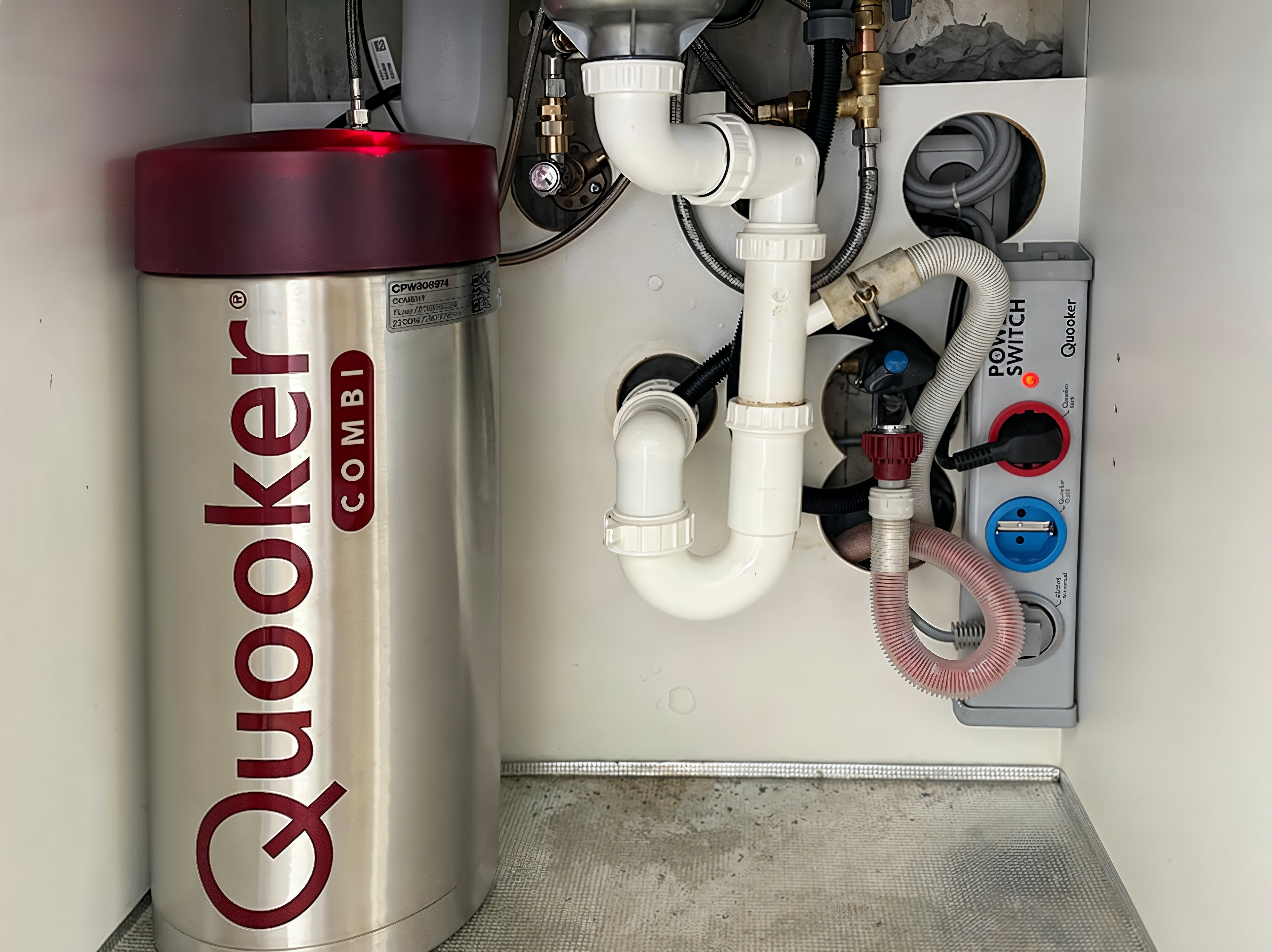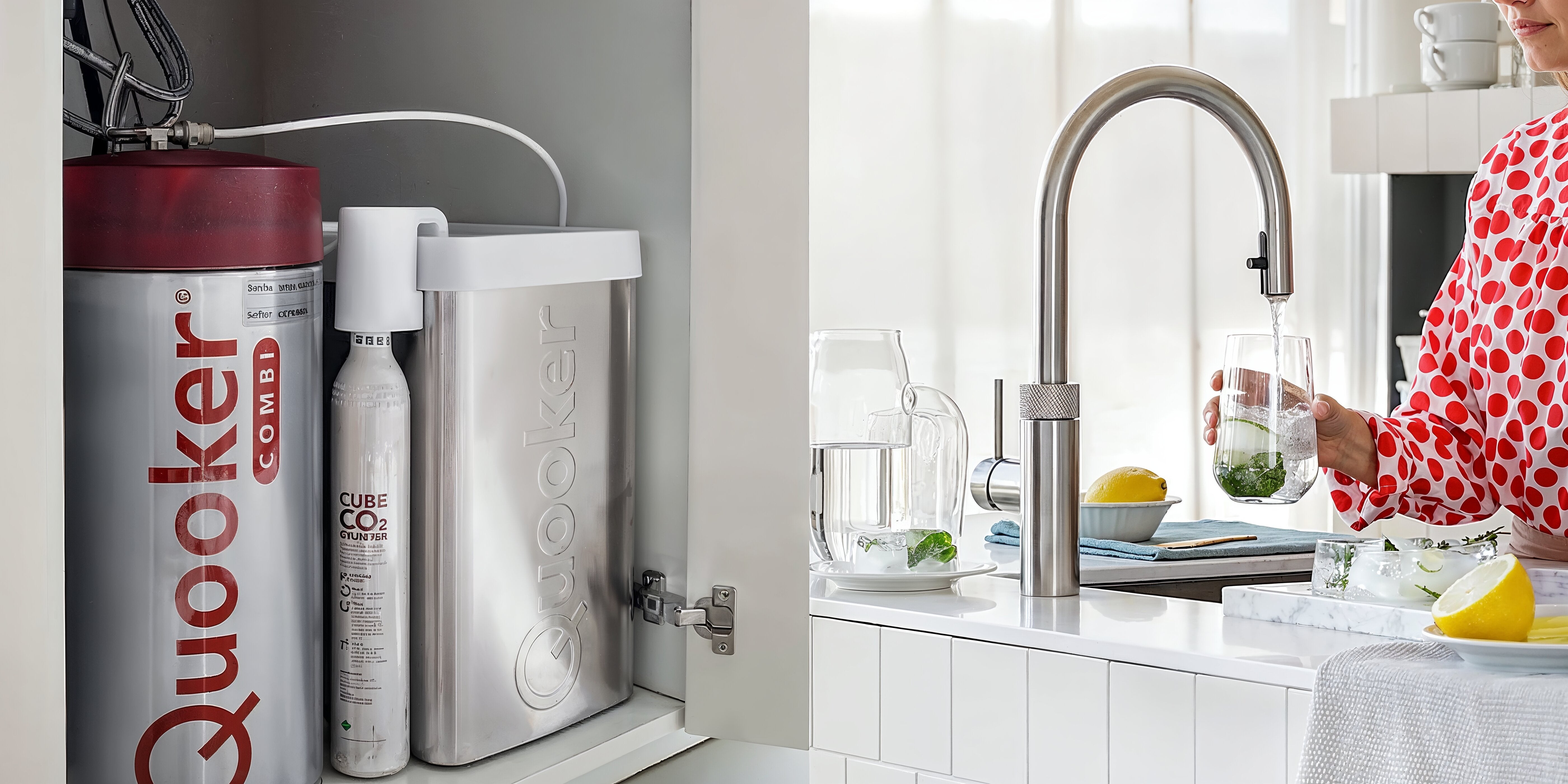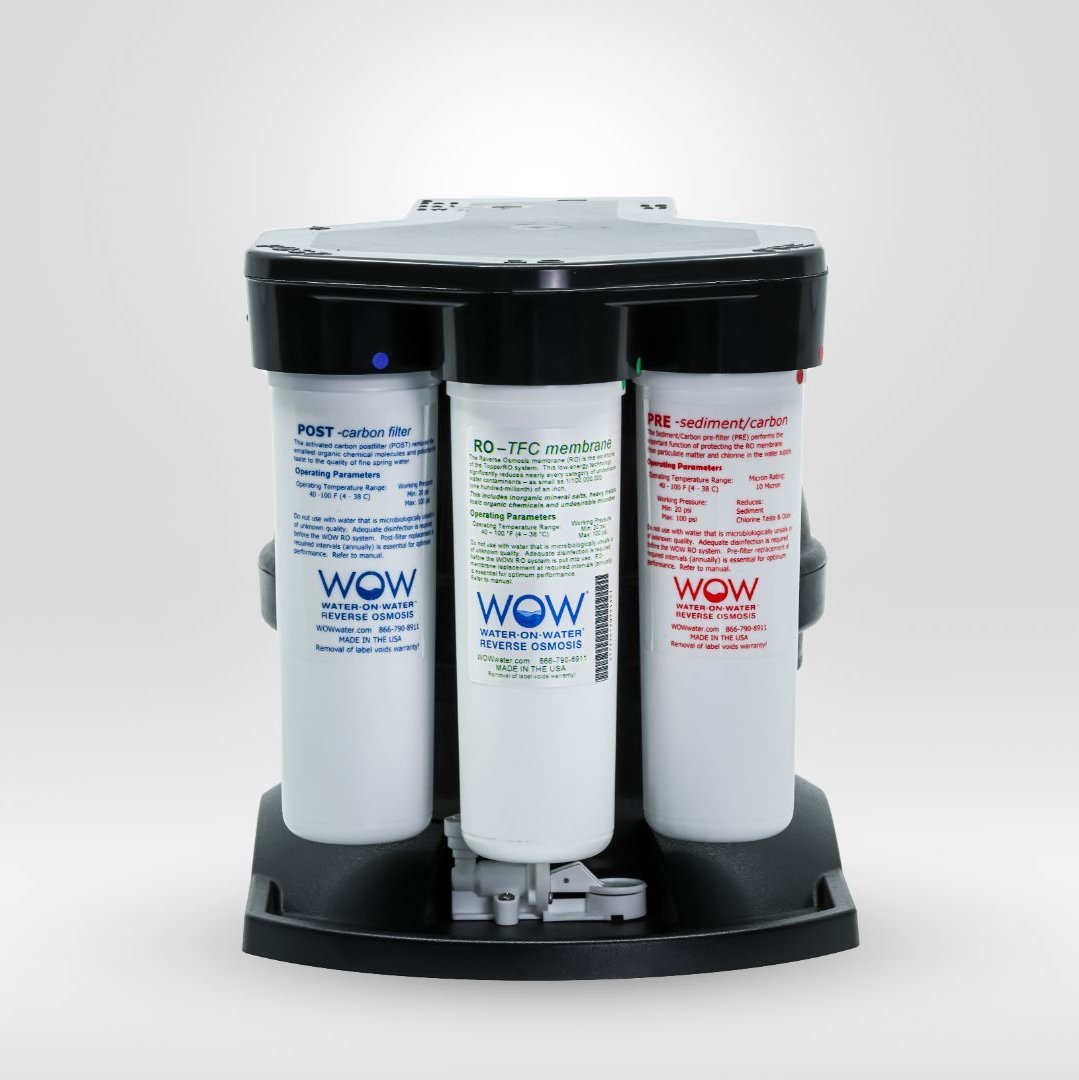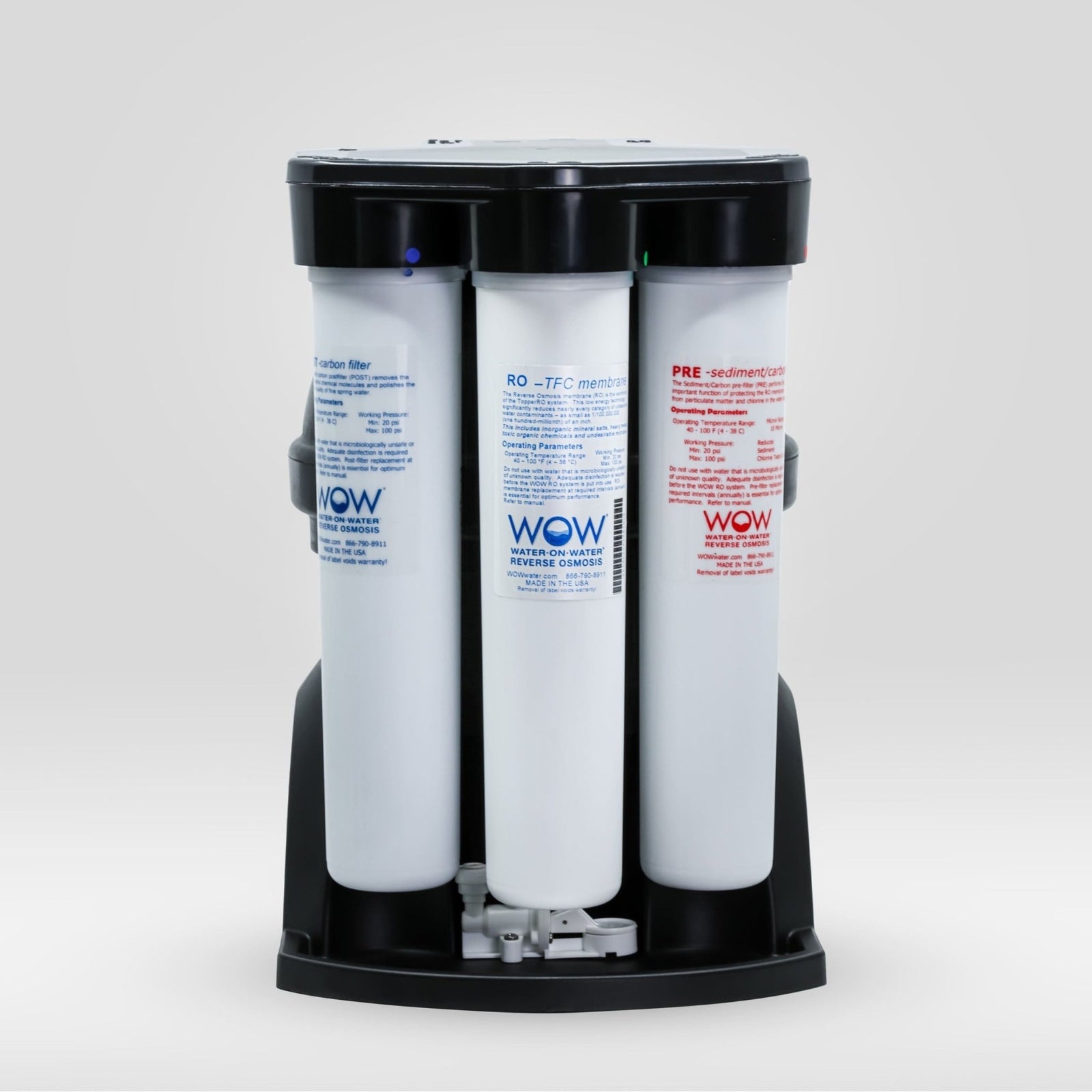Tap water affects the taste of coffee because minerals, chlorine, and other substances in the water interfere with the extraction of coffee aromas. Hard water, high in calcium and magnesium, can lead to bitter coffee, while chlorine imparts a chemical aftertaste. The solution lies in reverse osmosis water filtration, which removes up to 99% of unwanted substances and ensures spring-quality water that perfectly enhances the natural flavors of coffee.
Why does coffee taste different with tap water?
The composition of tap water directly influences how coffee aromas and oils are extracted during the brewing process. Water isn't simply a neutral solvent, but an active component that determines which flavors are absorbed from the coffee beans. Minerals like calcium and magnesium in the water bind to specific compounds in the coffee, disrupting the delicate balance between acids, sugars, and bitter compounds.
Chlorine, which is added to make tap water safe, reacts with the natural oils in coffee beans and creates unwanted chemical compounds that mask the flavor. These compounds not only disrupt the extraction process but also add their own flavor profile to the final product. The result is coffee that can taste flat, bitter, or even chemically flavored, regardless of the quality of the beans used.
Water quality largely determines whether you can taste the subtle nuances of specialty coffee. Professional baristas understand this and therefore often use filtered water to achieve consistent results. With a home water filtration system, you can gain the same control over your water quality.
Which substances in tap water affect the taste of coffee?
Tap water contains several components, each of which has its own effect on the flavor of coffee. Calcium and magnesium, the main components of water hardness, are essential for good extraction but can, in excessive concentrations, create a dry, chalky aftertaste. These minerals bind to coffee acids and diminish the clarity and complexity of the flavor.
Chlorine and chloramines are disinfectants that add a sharp, chemical flavor to coffee. They react with phenolic compounds in coffee beans to produce trichloroanisole, a substance that, even in minuscule amounts, can completely ruin the flavor. Heavy metals like lead and copper, though usually present in low concentrations, can cause a metallic aftertaste that is particularly noticeable in lighter roasts.
| Dust in tap water | Effect on coffee taste | Ideal value |
|---|---|---|
| Calcium | Increases body, too much gives chalky taste | 40-80 mg/L |
| Magnesium | Improves extraction, too much gives bitter taste | 20-30 mg/L |
| Chlorine | Chemical aftertaste, masks aromas | 0 mg/L |
| Bicarbonate | Neutralizes acids, makes coffee flat | 40-80 mg/L |
| TDS (total) | Determines extraction efficiency | 120-150 mg/L |
PFAS, pharmaceutical residues, and microplastics are modern contaminants increasingly found in tap water. While their direct impact on taste is less clear, they can cause subtle off-flavors and are undesirable from a health perspective. A complete home water filtration system effectively removes these substances.
How do you know if water is ruining your coffee?
Water-related flavor problems in coffee are often immediately recognizable by specific characteristics. A bitter, dry aftertaste that lingers usually indicates water that is too hard and has a high mineral content. If your coffee has a sharp, chemical aftertaste reminiscent of swimming pool water, chlorine is the culprit. A metallic taste indicates the presence of heavy metals in the tap water.
Visual indicators also reveal a lot about water problems. If the crema on espresso disappears quickly or is uneven, this indicates an incorrect mineral balance. An oily film forms on the surface of filter coffee when minerals can't properly emulsify the natural oils in the beans. Limescale in your coffee maker is the most obvious sign of hard water.
Look out for these signs that your water is affecting the taste of your coffee:
- Coffee tastes flat despite fresh, high-quality beans
- Inconsistent taste with the same coffee and method
- Cloudy or discolored coffee extract
- Rapid build-up of limescale in equipment
- Tea from the same water also tastes disappointing
What is the ideal water for perfect coffee?
The ideal water for coffee brewing has a total dissolved solids (TDS) level of 150 mg/L, with a balanced mineral composition. The ideal pH is around 7.0 for optimal extraction of coffee aromas. This water contains enough minerals to act as a catalyst for flavor extraction, but not so many that they disrupt the delicate balance.
The Specialty Coffee Association has developed specific water standards for professional coffee brewing. They recommend a calcium level of 68 mg/L, magnesium around 17 mg/L, and a total alkalinity of 40 mg/L. These values ensure the perfect balance of clarity, sweetness, and body in your coffee.
Water that is too soft and lacking minerals under-extracts coffee, resulting in a sour, harsh flavor. Water that is too hard exceeds the ideal mineral levels and leads to over-extraction, resulting in bitter, dry flavors. The trick is to find the perfect balance, with reverse osmosis technology using remineralization being the most reliable method for consistently creating ideal water.
How do you improve tap water for better coffee?
There are several methods for optimizing tap water for coffee brewing, with reverse osmosis technology offering the most effective solution. This technology removes up to 99% of all unwanted substances, including chlorine, heavy metals, PFAS, and microplastics. The result is pure water that is then enriched with the ideal mineral balance for coffee extraction using a remineralization filter.
Water filter systems like The Source use a multi-stage filtration process specifically designed for optimal water quality. The system operates without electricity and produces up to 500% less wastewater than traditional reverse osmosis systems, making it a sustainable choice. The patented Water-on-Water storage tank ensures you always have fresh, filtered water available.
Practical steps to improve your tap water:
- First test your tap water with a TDS meter to determine the starting point
- Install a reverse osmosis system under the sink
- Use a separate tap for filtered water to prevent cross-contamination
- Replace filters according to the recommended schedule for consistent quality
- Consider a system with remineralization for the perfect mineral balance
Key factors for delicious coffee with filtered water
The essential water quality factors for optimal coffee flavor are mineral balance, purity, and consistency. Professional water filtration ensures water with a stable composition, allowing you to achieve the same excellent results every time. This is especially important for coffee enthusiasts who invest in high-quality beans and equipment.
Modern filter systems with reverse osmosis technology offer complete control over your water quality. They not only remove harmful substances but also add healthy minerals like calcium and magnesium in the correct ratios. This results in coffee that reveals all its natural aromas, from the fruity notes of light roasts to the chocolatey nuances of dark roasts.
The benefits of filtered water for coffee go beyond just taste. Your coffee equipment will last longer due to the absence of limescale, saving on maintenance costs. Moreover, you contribute to a more sustainable lifestyle by reducing the use of plastic water bottles. With a water filter system, you're not only investing in better coffee, but also in your health and the environment.
